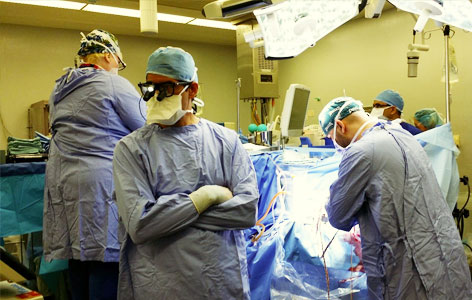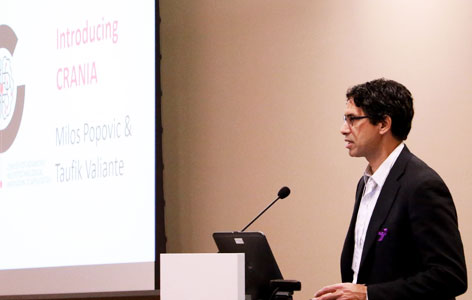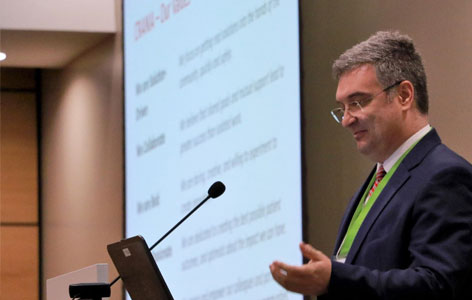
By: Michael Chang, UHN Trainee and ORT Times Writer
There is a story of a young girl who suffered from severe seizures since age 12. No medication prescribed was able to control her seizures. After six years of living in fear from the unpredictable nature of seizure attacks and feeling a lack of control over her own life, she jumped in front of a speeding train–and ended her life. This story illustrates the devastating impact that poor brain health can exert on people. Dr. Taufik A. Valiante, a Neurosurgeon and Scientist at the Toronto Western Hospital (TWH), is reminded of that fact all too often.
“There is a great need for new treatments and management strategies for epilepsy,” says Dr. Valiante. “In fact, around 30% of all people with epilepsy do not respond to available anti-seizure medication, and of those, only half may be potential candidates for surgical interventions.” These statistics are particularly dire because approximately 50 million people in the world suffer from epilepsy. Despite tremendous efforts over the last century, the efficacy of anti-seizure medications has stagnated. Moreover, epilepsy, along with other neurological diseases, are poised to increase in frequency as Canada’s population pyramid continues to invert with an aging population living longer than ever. In order to address this growing issue, Drs. Taufik Valiante and Milos Popovic teamed up to establish The CenteR for Advancing Neurological Innovation to Application (CRANIATM). The new centre at UHN takes a fresh approach to improving brain health by developing neurotechnologies that can communicate with the brain.
CRANIA’s streamlined infrastructure to develop neurotechnology is incredibly promising. The centre is physically located at TWH and allows for transformative research developments to occur from bench to bedside. Furthermore, the centre draws upon the immense expertise of Drs. Valiante and Popovic, who have established Canada’s largest academic surgical epilepsy program and the Rehabilitation Engineering Laboratory, respectively. Their collective experiences have allowed them to develop the blueprint for accelerating the transition of new engineering technology to clinical application in patients. CRANIA’s purpose is to provide resources, state-of-the-art equipment, access to patients and a supportive environment for collaborations between top talent from diverse fields.
During CRANIA’s pre-launch event, Dr. Valiante was asked: “If CRANIA is successful in streamlining the development of neurotechnology that can control seizures in patients, won’t that essentially result in you losing your day job as a neurosurgeon?” Dr. Valiante smiled and replied “My first passion has always been to understand the brain; it was during my PhD that I realized epilepsy surgery would allow me direct access towards understanding the brain. I am incredibly proud of my involvement in growing UHN’s Epilepsy Monitoring Unit and the Surgical Epilepsy Program. It has allowed me to be a part of people’s lives, either as their surgeon or a fellow member of the epilepsy community raising awareness. To additionally be part of something transformative like CRANIA, actively working towards improving brain health, is truly a profound privilege and something that I believe could only happen here at UHN and the Krembil Brain Institute.”

Dr. Valiante introducing CRANIA at the pre-launch event (May 15, 2018). Image courtesy of the Techna Institute.

Dr. Milos Popovic introducing CRANIA at the pre-launch event (May 15, 2018). Image provided by Techna Instiute.




